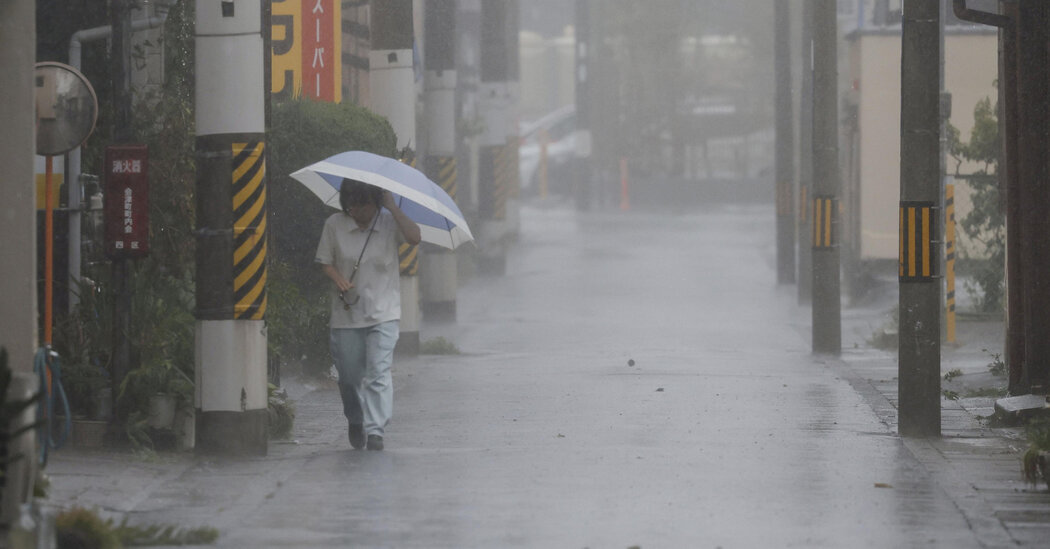Typhoon Lan pummeled western Japan on Tuesday, prompting local officials to issue evacuation warnings, knocking out power to thousands of homes, canceling hundreds of flights and disrupting summer traditions like a nationwide baseball tournament.
Moving in from the Pacific Ocean, the tropical storm had maximum sustained winds of 67 miles per hour, with gusts of 89 m.p.h. on Tuesday morning. It first made landfall in Shionomisaki, at the southern tip of Wakayama Prefecture, just before 5 a.m., then came ashore again more than hundred miles to the north, in Akashi, Hyogo Prefecture, at around 1 p.m.
As of 3 p.m. on Tuesday, more than 50,000 homes were without power. All commercial flights out of Kansai airport had been suspended for the day, with more than 800 canceled nationwide. Train and bus services in the region had also been suspended.
Tornado warnings were issued for central Shizuoka Prefecture just before noon by the Japan Meteorological Agency, which warned of thunderstorms, wind gusts, and hail.
In two prefectures, Tottori and Okayama, rainfall in a few hours exceeded the average for the entire month of August. Record-breaking levels of rain over a short period of time were also recorded in Kyoto and Nara.
At least 20 people were injured across five prefectures, including a man in his 60s, who was unconscious and in critical condition after the wall of a building collapsed on him.
Popular tourist destinations including the Kyoto Imperial Palace and Universal Studios Japan in Osaka were closed on Tuesday, and the Koshien, Japan’s national high school baseball tournament that is followed by millions of fans each year, canceled all games for the day.
With the typhoon approaching in the midst of a holiday, summer fireworks and festivals were also canceled. Hundreds of 24-hour convenience stores were shut in the Kansai region, in a sign of the severity of the storm.
Typhoon Lan is forecast to move northwest, reaching the Sea of Japan by Wednesday, before heading north toward the far-east Russian island of Sakhalin. Its arrival comes on the heels of Typhoon Khanun, which ravaged the south of Japan earlier this month before moving toward the Korean Peninsula.
Source: nytimes


